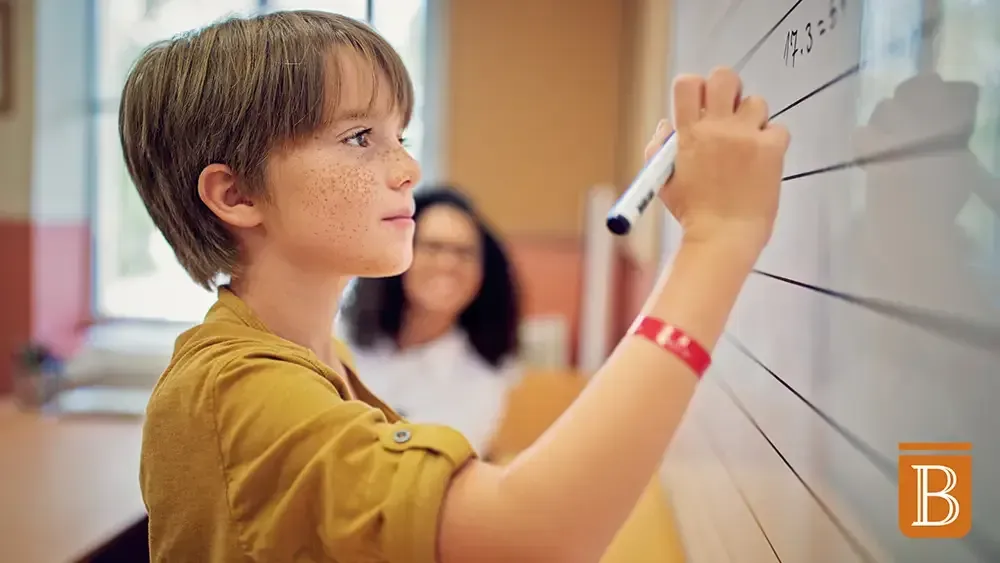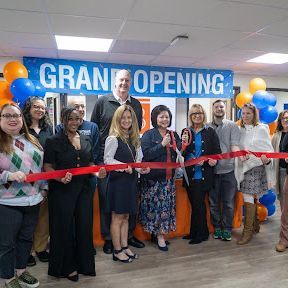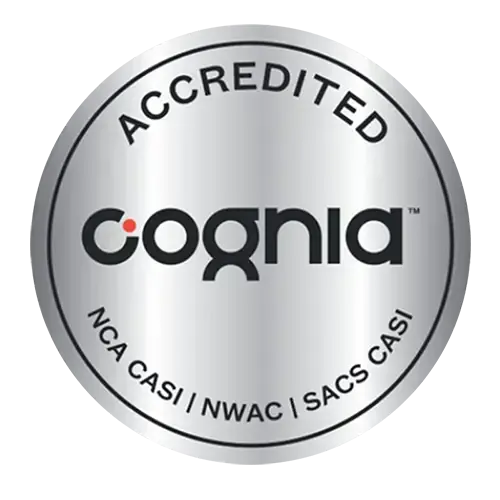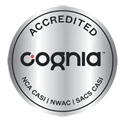What Makes a Good Fit School? A Checklist for Parents
- Is there support for your student if they are struggling?
- What are the class sizes?
- Do the teachers personalize learning and know their students?
- Does the school schedule work for your family?
- Is the school accredited?
- Does the school offer academic rigor for your child?
- Does the school have a good reputation and location?
- Are students college and career ready after graduation?
Choosing the Right School: Key Questions Every Family Should Ask
When families are looking for schools that fit their needs they may find themselves asking important questions before making a commitment to a private school. While priorities vary between families and students, common concerns emerge during the decision making process. Whether relocating or simply seeking a better educational fit, families are ultimately looking for one thing: success for their child.
The Power of Small Class Sizes: Boosting College and Career Readiness

First things first, While large class sizes may work for some students, national test scores are at a low, and many graduates aren’t meeting college and career readiness standards. In the September 2025 government report A broader Picture of Student Learning the US data shows “The full 2024 Nation’s Report Card shows declines between 2019 and 2024 in 4th, 8th, and 12th grades in math and reading and 8th grade science. And, except in 12th grade reading, the gaps between the highest- and lowest-performing students have widened in 2024. A third – 33% – of 12th graders were considered academically prepared for entry-level college math coursework in 2024, down from 37% in 2019. In reading, 35% of 12th grade students were considered academically prepared in 2024, down from 37% in 2019. Yet, surveys show an uptick in 12th graders who report being accepted to a four-year college, compared to 2019.“ (nagb.gov, 2025). In contrast to large classrooms, smaller class sizes offer the opportunities for individualized support, collaboration and independent learning to prepare for the responsibilities of young adulthood. Smaller class sizes, such as one-to-one with adaptive instruction and curriculum, have a proven record of preparing youth for college and careers by building confidence and fostering responsibility through exploratory learning – key traits for success in adulthood.
Why School Location Matters: Safety, Influence, and Daily Experience
On to the practical matters, when choosing a school location plays a key role in safety, student well-being, and convenience. A school's surrounding environment–including neighborhood safety, traffic, and access to healthy activities can influence how comfortable and engaged students feel. Children’s physical activity, mood, and physical activity correlated to parents' perception of safe outdoor activity in their neighborhood (Galaviz et. al., 2016). Daily conversation and how comfortable students feel in the school can be correlated with the crime rate in the area of the school. A positive environment supports a positive mindset, which ultimately contributes to academic success.
Parental Perception of Neighborhood Safety and Children's Physical Activity - PubMed
Accreditation
Meanwhile, some schools may offer convenience and small classroom sizes but they don’t offer the accreditation needed to continue education after high school. Accreditation matters when considering graduation and higher education. Students work hard for their diplomas and deserve credit for their work as they move on to trade school or college.
A Good Fit School
All in all, educational needs vary by family. With that being said, flexibility in scheduling, appropriately rigorous courses, and nurturing instructors are prudent to student success. Accelerated courses work for performers with demanding schedules, as well as in credit recovery. When a student is in an educational environment alongside instructors that adapt to student needs, confidence is built and students can meet their goals. Maybe your list wasn’t an exact match when you started your search for a new school. However, seeing your student’s mindset shift from overwhelmed to confident is a goal for many families for multiple reasons.
Brightmont Academy
One-to-one instruction at Brightmont Academy fosters college and career readiness, personalized learning, appropriate academic rigor, support for struggling learners, and flexible scheduling. Brightmont Academy is here for your family with hundreds of courses and expert instructors. The Brightmont Academy accreditation, location considerations, flexible schedules, and student support check all of the boxes that matter the most when families are searching for the right educational fit for their students' success. Connect with one of our campuses to meet with a Director. Tour campus and ask about the higher education success Brightmont Academy students achieve. Fulltime and skill building courses are offered year around to support your students' needs.
Sources:
Galaviz KI, Zytnick D, Kegler MC, Cunningham SA. Parental Perception of Neighborhood Safety and Children's Physical Activity. J Phys Act Health. 2016 Oct;13(10):1110-1116. doi: 10.1123/jpah.2015-0557. Epub 2016 Aug 16. PMID: 27254849; PMCID: PMC9879718.
National Assessment Governing Board. (2025). Nation's Report Card Shows Declines in 8th-Grade Science and 12th-Grade Math and Reading; Last in a Series of Post-Pandemic NAEP Data. nagb.gov

Rachel Pollock is an English and Social Studies Instructor at Brightmont Academy, freelance writer, and Chapter Advisor for Future Business Leaders of America. She holds a master’s degree in Psychology from American Military University and graduated with honors for research in social-emotional learning (SEL) in K–12 schools. With over six years classroom experience working with gifted and twice-exceptional (2E) students, Rachel brings professional insight and personal insight as a parent of gifted teens. She has elevated student voice through recognition in the Scholastic Art & Writing Awards reflecting her commitment to creativity, academic rigor, and authentic expression. She is dedicated to supporting learners, families, and educators in a rapidly changing world.
Disclaimer: I am not a licensed clinical therapist and do not provide mental health counseling or therapy services. The information shared here is intended for educational and informational purposes only and should not be interpreted as psychological diagnosis, treatment, or medical advice. For personal mental health support, please consult a licensed mental health professional in your area.
More Blog Posts + News

